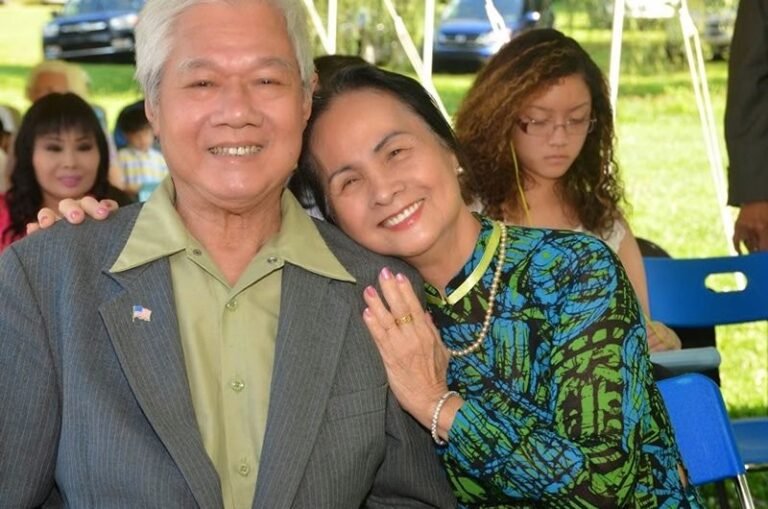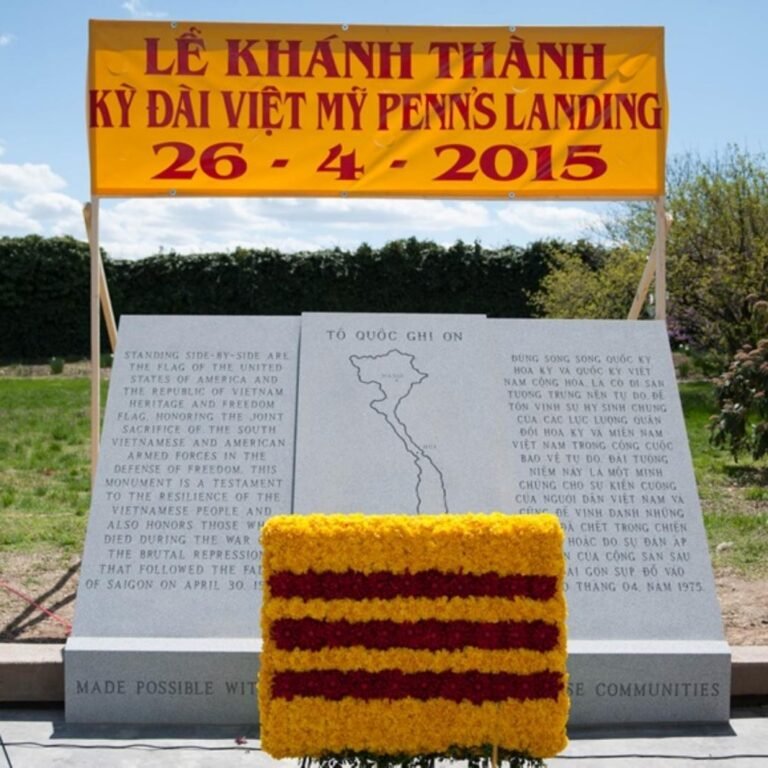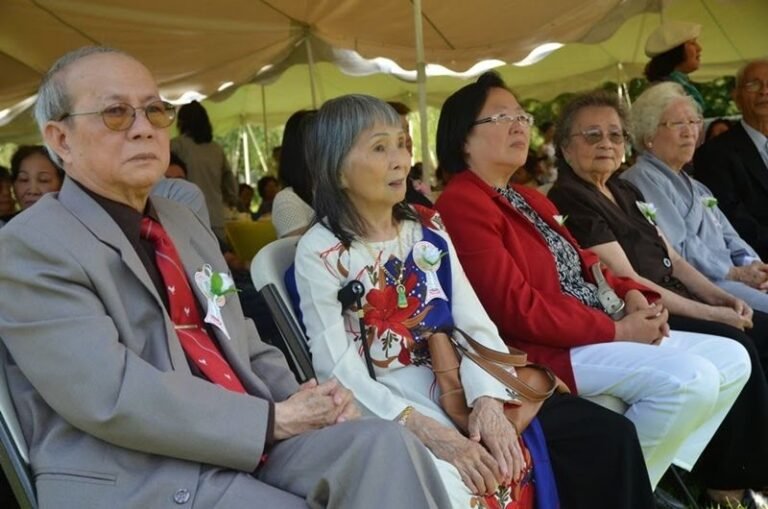Go To America
Go to America
(To All H.O. Vietnamese Wives)
Tonight, it seemed that nobody in Mr. Thanh’s family could fall sleep. Their four children had been in their bedroom for a long time but the lights were still on. Mrs. Mai, Mr’s Thanh’s wife, kept going to the place where the suitcases were, opened them and then closed them without checking anything.
Tonight is their last night in this house in which they have lived in the last 6 years after Mr. Thanh was released after spending 10 years in the re-education camp. This is the house they have been renting after they sold their own ancestral house out of needs for money to pay for expenses while they applied for resettlement in the U.S.. Tomorrow morning, the family will go to the airport, destination U.S.A., under the Humanitarian Operation program because Mr. Thanh was a high ranking officer under the old regime, and his family was granted permission to resettle in the U.S. for humanitarian reason.
Mr. Thanh spoke out to his wife, “Honey, why don’t you go to bed, but keep checking the suitcases.”I’m not cheking anything”, Mrs. Mai said. Mr. Thanh continued, “We go to America empty handed – not that we have gold in there that you have to check it all the time. All the important papers and school papers of our children are in the briefcase. He continued to reassure his wife, “We have everything already – let’s get some sleep for we have to get up by 6 AM in the morning to go to the airport.”
Every single day this week, Mr. and Mrs. Thanh and their two older children stayed past the wee hours getting everything ready. Mr. Thanh corresponds with his friends who came to the U.S. earlier asking them to help him find a job working in the same place with them in a 5-star hotel in Los Angeles, California. Mr. Thanh often says that he can handle any type of job and will not turn down any offer. Ten years of hard-labor and mistreatments in the re-education camp taught him that he had to swallow his pride and carry out the punishment for his own survival. Right now, Mr. Thanh only looks at life from the perspective of his stomach and the future of his four children. He often says, “I will take any job that pays for the rent and food for my family.” Mrs. Mai was often worried, confined with her husband about her inability to understand the English language. When Mr. Thanh was summoned to the re-education camp 10 years ago, without second thought, she went straight to the market to find work to support her two children – Hoa was only four-years old and Lan was just a year old. In addition to that, she must visit her husband often bringing him food and everything he needed. However, she was not once feeling scared and worried. It’s different now; she knows when her family goes to the U.S., she will not be able to make a living because of her language barrier, and of course, the market in the U.S. will not be like the one in Vietnam. She felt as if she was a wild hen in the jungle that people just clipped the feathers from her wings and she no longer can fly to find food for her young chicks. Even though being a vendor in the market was not her main business, she managed it well for her family’s survival while her husband was detained in the re-education camp for 10 years.
After Mr. Thanh was freed from the re-education camp, he could not help his wife with her business in the market, but focused entirely on the paperwork for the resettlement in the U.S.. A year later, they had a boy named Hung, and two years after, another boy was born named Thinh. The family now had 4 children, however, only Mrs. Mai continued working by herself while Hoa and Lan, two older children, helped with babysitting the younger ones. Fortunately, her business picked up and thus allowed her to feed more mouths without problem.
A few weeks after the family learned of their approval for re-settlement in the U.S., Mrs. Mai had to quit working in preparation for the move. After quitting her business, she often felt like having no use for her hands and feet as if they were extras. Sometimes she feels lonely when she thinks about going to America. She was the one who used to do everything for her family and now she feels as if she was on the sideline looking at her husband in action. She knows the only duty left for her to do is to cook for the family, and when she needs to go to supermarket, she must ask her husband or her children to take her. Mr. Thanh often tries to cheer her up saying he’ll find work in the same company with his friends and she will have plenty of things to do at home, but nevertheless, she is still worried. Mrs. Mai is obviously happy for her children because she knows they will have a future in the U.S., however, she is apprehensive about the prospect of her husband’s chance of landing a good job and be able to provide for the family. At least, Mrs. Mai was encouraged to know that her husband and her two older children can speak English because they have been so studious in their learning of the English language getting ready for the resettlement. For Mrs. Mai, she can only say “hello”, “good-bye” and “thank you” that her two children taught her. Lan, the second girl in the family is very exciting about America; she knows that, for the next school year, she will enroll in her last year of high school and will have an opportunity to go on to college like her older brother. The two younger boys, Hung and Thinh, just playfully say the phrase “go to America” all day. However, Hoa, the oldest boy, 20 years of age, just finished his second year of college studying computer science engineering showed no excitement. If he was exciting about going to America, he managed not to show it. Bich, his girlfriend, also just finished her first year studying Vietnamese Literature; they were together at all times in the last week of them being together. If Bich did not come to the house to help Hoa packing, they would go out all day long. In the evening, they spent time in the park until midnight.
Finally the time to say good-bye is here. To Hoa, the departure day seemed to come quickly. The two younger brothers were just got up while the rest of the family has been up ready to leave when Bich arrived at the house on her Honda. Her face did look sad and her eyes appeared to be swollen a little, perhaps, she did not sleep last night and possibly cried a lot. “Dad, I am going with Bich to fetch a Taxi,” said Hoa. Turning to Bich, Hoa said, “you ride.” as he hopped on behind her, embraced her back tightly, buried his face into her hairs as if he did not want to leave.
Jim Huynh
May 23, 2011






